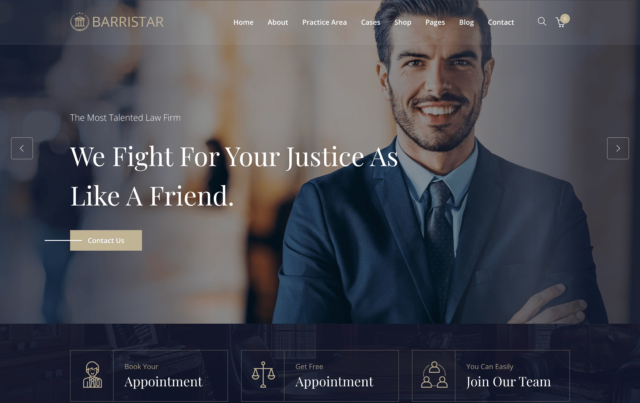Florida Attorney Advertising Rules: A Comprehensive Guide
Read for more information on the rules for online advertising for Florida attorneys
Florida Attorney Advertising Rules: A Comprehensive Overview
Attorneys practicing in Florida must adhere to specific advertising regulations as outlined in the Rules Regulating The Florida Bar, particularly Chapter 4, Subchapter 4-7. These rules are designed to ensure that legal advertising is truthful, non-misleading, and upholds the integrity of the legal profession. Below is a detailed overview of the key provisions governing attorney advertising in Florida, with references to specific rules.
Rule 4-7.11: Application of Rules
- Scope of Application:
- The advertising rules apply to all forms of communication by a lawyer seeking professional employment, including print, electronic media, direct mail, and digital platforms such as websites and social media.
- These rules are applicable to Florida Bar members and out-of-state lawyers who advertise to provide legal services in Florida or target Florida residents.
- Exemptions:
- Communications to existing clients, other lawyers, and certain pro bono activities may be exempt from these advertising rules.
Rule 4-7.12: Required Content
- Name and Office Location:
- All advertisements must include the name of at least one lawyer or law firm responsible for the content.
- The city, town, or county of one or more bona fide office locations where legal services will be performed must be disclosed.
- Legibility and Clarity:
- Required information must be clear and conspicuous, ensuring that a reasonable person notices it.
- Written disclosures must be legible, and spoken disclosures must be intelligible.
Rule 4-7.13: Deceptive and Inherently Misleading Advertisements
- Prohibited Content:
- Advertisements must not contain false, misleading, or deceptive statements.
- Misleading information includes material misrepresentations of fact or law, or omissions that render the communication as a whole misleading.
- Unsubstantiated Comparisons:
- Lawyers must avoid comparisons of their services with those of other lawyers unless the comparison can be factually substantiated.
Rule 4-7.14: Potentially Misleading Advertisements
- Use of Personal Attributes:
- Advertisements should not include statements regarding a lawyer’s character, skills, or reputation that cannot be objectively verified.
- Dramatizations and Simulations:
- Any use of dramatization or simulation must be clearly disclosed to prevent misleading impressions.
Rule 4-7.15: Unduly Manipulative or Intrusive Advertisements
- Prohibited Techniques:
- Advertisements must not use techniques that appeal to emotions rather than rational evaluation of a lawyer’s suitability.
- This includes the use of an authority figure or celebrity to endorse or recommend the lawyer.
Rule 4-7.16: Presumptively Valid Content
- Safe Harbor Information:
- Certain factual information is considered presumptively valid, including:
- Lawyer’s name or firm name.
- Address, telephone number, and website.
- Areas of practice.
- Date of admission to The Florida Bar.
- Language abilities.
- Certain factual information is considered presumptively valid, including:
- Practice Areas:
- Lawyers may state areas of practice but must not claim specialization unless certified by an approved organization.
Rule 4-7.17: Payment for Advertising and Promotion
- Prohibition on Compensation for Recommendations:
- Lawyers must not give anything of value to a person for recommending the lawyer’s services, except for:
- Paying reasonable costs of advertisements.
- Paying usual charges of a legal service plan or a not-for-profit lawyer referral service.
- Paying for a law practice in accordance with Rule 4-1.17.
- Lawyers must not give anything of value to a person for recommending the lawyer’s services, except for:
- Reciprocal Referral Agreements:
- Lawyers may enter into reciprocal referral agreements with other professionals, provided:
- The agreement is not exclusive.
- The client is informed of the existence and nature of the agreement.
- Lawyers may enter into reciprocal referral agreements with other professionals, provided:
Rule 4-7.18: Direct Contact with Prospective Clients
- Solicitation Restrictions:
- Lawyers must not solicit professional employment from a prospective client through direct contact when a significant motive is the lawyer’s pecuniary gain, unless:
- The prospective client is a lawyer.
- The person has a family, close personal, or prior professional relationship with the lawyer.
- Lawyers must not solicit professional employment from a prospective client through direct contact when a significant motive is the lawyer’s pecuniary gain, unless:
- Written Communications:
- Written solicitations must be clearly marked as “Advertisement” and comply with specific content and filing requirements.
- 30-Day Prohibition:
- There is a 30-day prohibition on solicitation following a specific incident involving personal injury or wrongful death.
Rule 4-7.19: Evaluation of Advertisements









